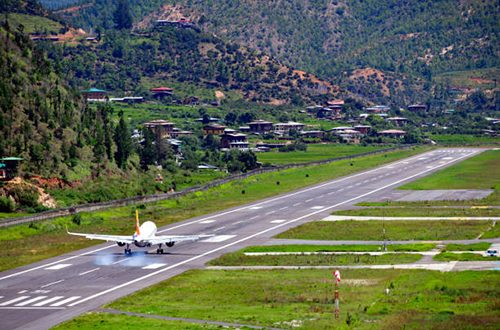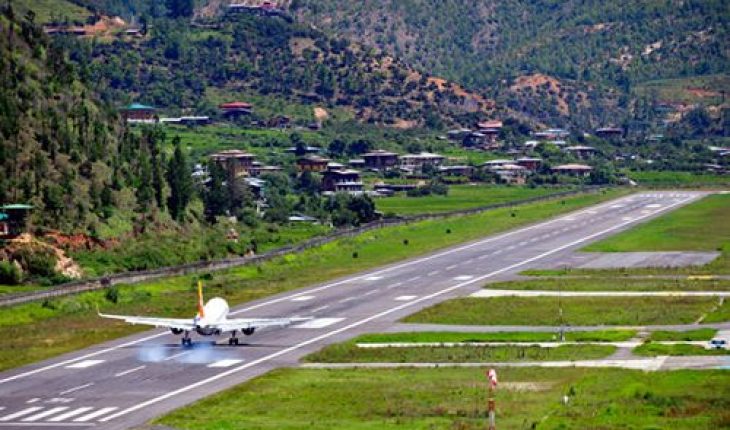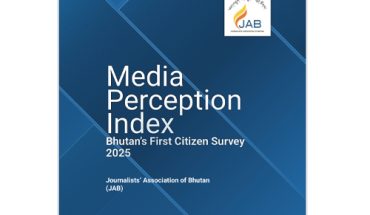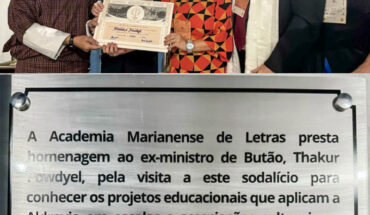
KIMNZANG DORJI TSHERING | Thimphu
Despite significant increases in tuition fees, visa costs, and living expenses, Bhutanese students continue to pursue higher education in Australia, drawn by its globally recognized universities, high academic standards, and multicultural environment. Official data shows that migration for education remains strong, reflecting both academic and economic motivations.
According to the Ministry of Foreign Affairs and External Trade (MOFAET), as of 2024, 42,829 Bhutanese citizens are officially registered abroad across 112 countries, while broader estimates suggest more than 66,000 Bhutanese live overseas, accounting for approximately 8.5 percent of the population. Australia hosts about 17,000 Bhutanese, making it the most popular destination for study and work. Other major destinations include India with around 13,800 Bhutanese, and Kuwait, which employs roughly 4,000 Bhutanese nationals.
Australian universities have announced tuition fee increases of 5–13 percent for international students, with some specialized programs, particularly in engineering and technology, costing up to AUD 60,000 annually. Visa fees were also raised in July 2024, with the Australian Department of Home Affairs increasing the student visa fee from AUD 710 to AUD 1,600 more than doubling the previous rate. Living costs for international students in Australia are estimated to exceed AUD 28,000 per year, reflecting inflation and rising accommodation expenses.
Despite these financial challenges, Bhutanese students continue to apply to Australian universities. Education consultancies in Thimphu report that students and families carefully plan budgets, seek scholarships, and consider part-time work options to meet the increased costs.
Economic disparity remains a major motivator. According to the Bhutan Living Standards Survey (BLSS 2023), entry-level graduate salaries in Bhutan range from Nu. 15,000 to Nu. 20,000 per month, whereas Australia’s national minimum wage is AUD 24.10 per hour as of July 2024, equivalent to roughly Nu. 1,300 per hour. For many students, part-time work abroad offers both financial support and professional experience, while remittances from Bhutanese abroad continue to provide important household income and contribute to national foreign exchange reserves, according to the Royal Monetary Authority (RMA).
While Australia remains the preferred destination, Bhutanese students are also pursuing studies and work opportunities in India, Japan, Canada, the United Kingdom, and the United States. The Druk Abroad portal, launched by MOFAET in June 2024, facilitates registration, consular support, and emergency assistance for citizens overseas. Officials highlight that registration helps maintain connections with Bhutanese living abroad and ensure their safety.
Concerns about brain drain persist among policymakers. Many young, educated Bhutanese continue to leave for international education and employment, creating potential skill shortages in sectors such as health care, education, and engineering. A 2024 report by the Ministry of Industry, Commerce, and Employment (MoICE) noted that domestic employment opportunities, particularly in the private sector, struggle to match salaries and benefits available abroad.
Student voices highlight the appeal of studying in Australia despite these challenges. Kinley Chhimi Yoezer said, “I chose Australia for its high-quality education, diverse culture, and globally recognized universities.” He added, “Rising costs made me plan carefully, focusing on budgeting and financial management before applying. I plan to balance study and expenses through part-time work, scholarships, and smart budgeting. Part-time and post-study work opportunities were very important in my decision, as they offer practical experience. After completing my studies, I plan to return to Bhutan and apply my skills to contribute to the country’s development.”
Tenzin Lhakey highlighted Australia’s academic environment as her main attraction. “I chose Australia as my study destination due to its globally recognized education system, strong academic reputation, and emphasis on practical, industry-oriented learning. Australian universities are known for maintaining high academic standards and providing excellent support for international students,” she said.
She also spoke about the cultural experience: “Moreover, Australia’s multicultural environment makes it an ideal destination for international education. I want to gain exposure to different cultures while learning from a global environment, which I believe will help me grow personally and professionally.”
On financial planning, Tenzin Lhakey explained, “The increasing cost of tuition and living expenses required me to plan thoroughly before making my decision. I conducted extensive research on different universities and cities to identify options that offer quality education at a reasonable cost. I have also prepared a detailed financial plan, including savings, family support, and potential scholarships, to ensure I can meet all financial requirements responsibly without affecting my studies.”
Regarding balancing study and work, she added, “I intend to maintain a disciplined schedule that prioritizes academic commitments while utilizing part-time employment opportunities permitted under my visa conditions. Budget management will be essential; therefore, I plan to monitor expenses carefully, live modestly, and share accommodation to reduce costs. Effective time management and financial planning will allow me to balance my studies, work, and daily living requirements efficiently.”
Tenzin Lhakey also emphasized the importance of work experience. “The availability of part-time employment during studies and post-study work opportunities was an important consideration in choosing Australia. Such opportunities not only help international students gain financial stability but also provide valuable practical experience that complements academic learning. The post-study work visa options further enhance the appeal, allowing graduates to apply their skills in a professional environment and strengthen their career prospects,” she said.
On her long-term plans, Tenzin Lhakey added, “Upon completion of my studies, my long-term goal is to return to Bhutan and contribute to national development by applying the knowledge, skills, and international exposure gained in Australia. However, I also recognize the value of short-term professional experience abroad, which would enable me to enhance my expertise and bring more practical insights to my future work in Bhutan.”
Government data indicates that even with higher tuition and visa costs, Bhutanese students continue to prioritize overseas education for the opportunities it offers in academics, professional experience, and global exposure. The combination of wage disparity, limited domestic employment, and strong Diaspora networks ensures that studying abroad remains an attractive and enduring choice for Bhutanese youth.
The continued outflow of students, despite financial and logistical challenges, highlights a persistent trend: Bhutanese youth are increasingly viewing global education not just as academic advancement but as a strategic step for long-term career growth and national contribution. Programs such as Druk Abroad and government awareness campaigns aim to maintain ties with students abroad and facilitate their eventual return to Bhutan, providing both safety and policy support.





